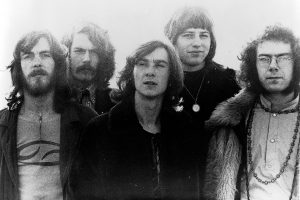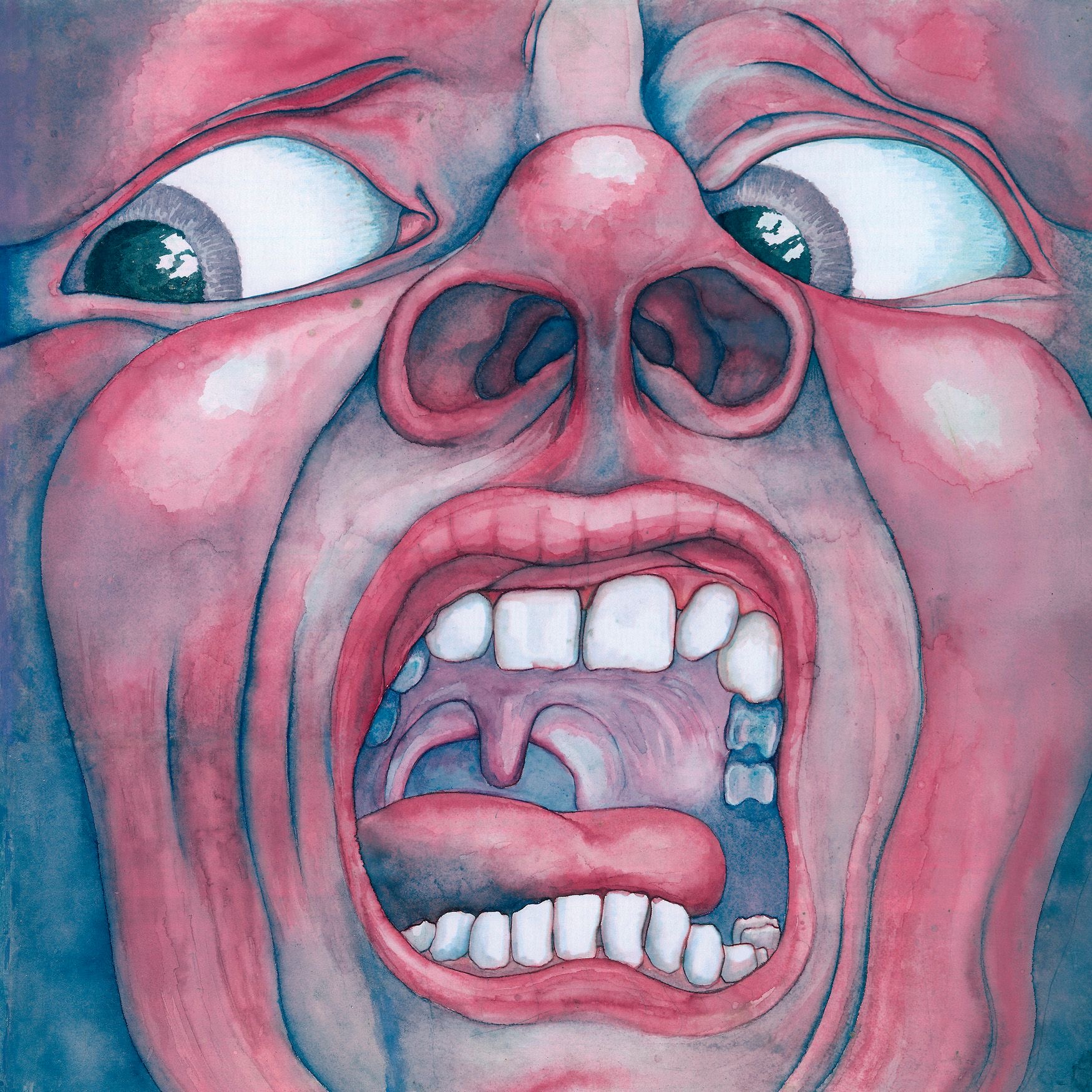On October 10th 1969 the world was taken by storm by an the unknown band King Crimson with their revolutionary album “In the Court Of The Crimson King” in which, through mixing rock with different styles such as Jazz (21st Century Schizoid Man), classical music (In the Court of The Crimson King) and symphonic (Epitaph), they gave birth to the first progressive rock album to target and criticize the actions government during the Cold War.

Although the 1960s were a period of economic progression and “Flower power” it was also a period of immense fear from everyone in the world. Despite the optimistic efforts in the rise of passive resistive culture, a large majority of the Western world remained anxious about the implications of the Cold War and on the future of mankind. The group, composed by 5 members, Ian McDonald, Peter Sinfield, Robert Fripp, Greg Lake, and Michael Giles all with different musical and social backgrounds, managed to create a bridge between the working-class rock and the middle class sensibilities, and from it the band King Crimson was birthed, with the sole reason of the frustration of nothing having enough challenge, nothing to rebel against.
The album reaching 43:56 minutes, is composed of 5 songs, “21st Century Schizoid Man”, “I Talk to the Wind”, “Epitaph” make up the first part while “Moonchild”, “In The Court Of The Crimson King”
The opening to the album, 21st Century Schizoid Man is most notable for its heavily distorted vocals sung by Greg Lake, its instrumental middle section, called “Mirrors”, and for lyrics written by the lyricist of the band, Peter Sinfield which consisted of a consecution of discontinued phrases. The first line of each verse always depicts two highly vague images, the second line is a more detailed description of another image, the third line is a complete phrase and the fourth is the song’s own title followed by the iconic heavy guitar instrumentals followed by trumpets and saxophones . Most of the song is in either 4/4 or 6/8 time, save for the end of the song, which is in free time throught which they make, much like the rest of the album, references to the Vietnam War with the line “Politicians’ funeral pyre/Innocence raped with napalm fire”.The song encompasses the heavy metal, jazz-rock and progressive rock genres, and is considered to be an influence on the development of progressive metal.
As a follow up to the chaotic opening, the second song of the album, “I Talk to the Wind” is instead a serene, peaceful and calming flute-guided by Ian McDonald’s instrument.
“Epitaph” is the closing song of the first part of the album, and through heavy use of Mellotron, depicts a dystopian scenario, reflecting the fears of the time, in particular a nuclear apocalypse, resulting in the confusion and despair of the narrator.
“Moonchild” is at first a mellotron driven ballad in a section called “The Dream” but after a few minutes turns into a free form improvisation called “The Illusion”
At last the 5th song, In The Court Of The Crimson King, is symphonic odyssey narrating the story of a fantastic kingdom guided by the “Crimson King”. This is but a mask, under which hides a harsh criticism of the time’s society and especially the Vietnam War. The lyrics and symphonic melodies representing the people in power stifling the masse’s dreams with endless war, killing the hopes of the population, death (Black Queen) chanting for the deaths of million due to the Vietnam War, the use of napalm(Fire Witch), as previously stated in the opening of the album, world superpowers caring only about building their empire (plating an evergreen) while destroying blossoming cultures (trampling on a flower), showing how the heads of state care so little they go about their mornings joking with each other nonchalantly while widows mourn their dead spouse (on soft grey mornings widows cry and wise man share a joke). At last, in the 4th verse is made up of a strong analogy between a jester pulling the strings of all court members as if they were puppets and world superpowers pull the strings of smaller countries through proxy wars instead of going into battlefield themselves.
This group will forever be remembered in history, for their unique styles and for their heavy critic lyrics denouncing the injustices and crimes in the world, making music not only a method of entertainment and leisure, but also an instrument of protest and to fight against atrocities.
Davide Guida, 2Q
